Will Russia’s leaders be brought to justice for Ukraine war crimes?
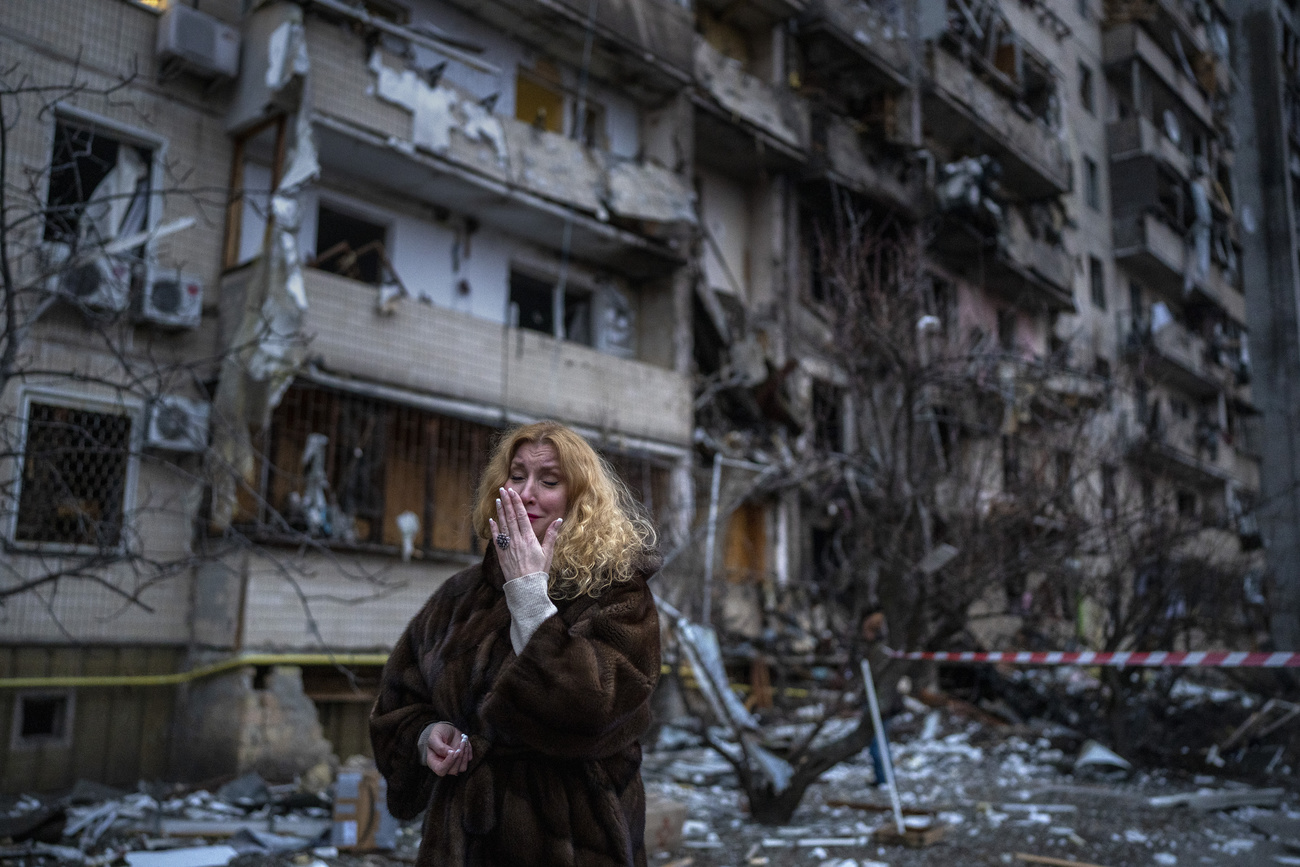
The International Criminal Court (ICC) has opened an investigation into the war in Ukraine after a request from 39 member states, including Switzerland. Other courts are also looking at Ukraine’s complaints after the Russian invasion. We look at the chances of Russia and its leaders being held to account.
The ICC is the only international court that could potentially hold individuals including Vladimir Putin criminally responsible. But Ukraine has also brought cases against the Russian state at the International Court of Justice (ICJ) and the European Court of Human Rights (ECHR). Sergey Vasiliev, a Russian-Dutch international criminal law expert at the University of Amsterdam, thinks Ukraine has been remarkably quick and impressive in its “lawfare” following the Russian invasion, especially given the circumstances. “This was probably done by international lawyers in Ukraine working in bunkers, with help from the diaspora,” he told SWI swissinfo.ch.
The question is how quick and effective these steps might be. First of all, these court proceedings take time. Already on Monday, the ICJ heard the case of UkraineExternal link, which argues that Russia has wilfully misused and violated the UN’s 1948 Genocide Convention. Kyiv says Russia falsely accused Ukraine of genocide against Russian speakers in the separatist Donbass region as a pretext for its invasion. The ICJ was then due to hear the Russian response on Tuesday, but Russia did not show up. And while a final ruling could take years, Cecily Rose, an expert on the ICJ at the University of Leiden in the Netherlands, thinks the court could issue a decision within the next week or two with “provisional measures”, essentially ordering Russia to stop its invasion.
Would Russia take any notice? Marco Sassoli, a professor of international law at the University of Geneva, is doubtful. “It seems Russia no longer cares about international law,” he says. But Sassoli thinks it is still important for history because “revisionists might later say Putin was right”. Rose is also pessimistic about such an order stopping the Russian military machine immediately, but she thinks it could perhaps play into ceasefire and peace negotiations.
The ECHRExternal link has already issued provisional measures calling on Russia to “refrain from military attacks against civilians and civilian objects” as well as other violations of international humanitarian law.
The International Court of Justice (ICJ)
Based in The Hague, Netherlands, it is the UN’s highest court and rules on disputes between states, based on international treaties and conventions. It cannot prosecute individuals. Its rulings are binding but it has no enforcement mechanism.
The International Criminal Court (ICC)
Also based in The Hague, the ICC was created in 2002 under the Statute of Rome. It is not a UN court but has many UN countries as members, although not the US, China, Russia or Ukraine. Ukraine nevertheless recognised its jurisdiction following the Russian annexation of Crimea in 2014. The ICC can, under certain circumstances, prosecute individuals for war crimes, crimes against humanity and genocide committed anywhere in the world. In 2017 it also introduced the “crime of aggression” but can only prosecute this under restrictive conditions. It can issue international arrest warrants for individuals, but relies on member states to arrest them. It does not have its own police force.
European Court of Human Rights (ECHR)
Based in Strasbourg, France, it is not to be confused with the Court of Justice of the European Union in Luxembourg. The ECHR was set up in 1959. It rules on individual or state applications alleging violations of the European Convention on Human Rights, which Russia and Ukraine have both ratified. The Court’s decisions are binding, but again it has no enforcement mechanism.
ICC opens investigation
Neither Russia nor Ukraine are members of the International Criminal Court, but Ukraine accepted its jurisdiction after Russia annexed Crimea in 2014. The court can prosecute individuals for genocide, crimes against humanity and war crimes. In 2017, the ICC also introduced the crime of aggression, but under restrictive conditions. It can only prosecute this crime if both concerned states are members, which they are not in this case, or if there is a referral from the UN Security Council, where Russia has a veto. The ICC could therefore only prosecute for the other crimes in this case.
Putin is clearly guilty of aggression, says Sassoli, but war crimes are much harder to prove, as you have to show a direct link between the individual and the deliberate targeting of civilians. In this war it could also be complicated by the fact that Ukraine has encouraged civilians to make home-made explosives. And if they throw them at Russian soldiers, they will be legitimate targets of attack under international humanitarian law (IHL), Sassoli told swissinfo.ch. Ukraine also violates IHL by parading captured Russian prisonersExternal link of war on social media.
Nevertheless, there have been reports of Russia targeting residential buildings, using banned weapons and staging attacks around nuclear facilities, potentially causing an even bigger catastrophe. There have also been allegations of rape by Russian soldiers. And Ukrainian refugees (two million and rising) will no doubt have their own stories to tell, including to the courts.
The ICC has so far moved at a “glacial pace” on Ukraine, according to Vasiliev. It opened a “preliminary examination” in 2014 but has not made it a priority until now. However, announcing the launch of an investigationExternal link on February 28, ICC Prosecutor Karim Khan said he was satisfied that there was already “a reasonable basis to believe that both alleged war crimes and crimes against humanity have been committed in Ukraine” and that the investigation would now be expanded to all areas of the country. He appealed for more resources, saying that “the importance and urgency of our mission is too serious to be held hostage to lack of means”.
According to Vasiliev, the ICC already has investigators in the region, although it is not clear if they are in neighbouring countries like Poland, where refugees are arriving, or in Ukraine itself. Sassoli says this could be a chance for the ICC to boost its credibility, but that it must also be careful. If it goes fast on Ukraine but continues to drag its heels on Gaza, Afghanistan or Georgia, for example, it will be accused of coming under pressure from Western powers.
Could Putin be arrested?
Asked if the ICC might dare issue an arrest warrant for Russian President Vladimir Putin, Sassoli says it has been quite courageous in the past: for example, its Afghanistan probeExternal link includes crimes allegedly committed by US and allied forces in that country. But he thinks it more likely that the war crimes easiest to prove could be those of “poor Russian recruits” who, we understand, were told by Russian propaganda that they were coming to liberate Ukraine from genocide.
Vasiliev thinks there might one day be an ICC arrest warrant for Putin, possibly issued under wraps for fear of exacerbating the situation on the ground. But then there is another problem, he told swissinfo.ch. As a sitting head of state whose country is not a member of the ICC, Putin has diplomatic immunity from arrest and prosecution, so the ICC could not issue a request to member states to arrest him. The ICC has no police force and relies on member states to carry out arrests.
So if Putin were to return to Geneva for peace talks, he would probably not be arrested. Vasiliev thinks it unlikely that Putin could be detained until he leaves or is forced from office.
Universal jurisdiction and commissions of inquiry
Putin and his entourage might however be careful where they travel due to the principle of “universal jurisdiction”. States (including Switzerland) who have incorporated this principle into their legislation can arrest suspected perpetrators of international crimes (genocide, crimes against humanity and war crimes) on their territory and try them in domestic courts. The Netherlands has also incorporated the crime of aggression under this principle.
Russian oligarchs might also not feel safe travelling to certain countries, sending their kids to Swiss schools or coming skiing here, says Sassoli – for fear of one day being arrested. It remains to be seen what happens, but this all puts more pressure on the Russian president.
Meanwhile, the UN Human Rights Council meeting in Geneva last week voted to set up a three-member commission of inquiry into violations of human rights and international humanitarian law in Ukraine. Its mandate is to investigate, identify “individuals and entities” responsible, and preserve evidence “for future legal proceedings”. The Human Rights Council is not a court but could help feed into legal processes. The Organization for Security and Cooperation in Europe is also investigating.
Given especially that the ICC’s resources and mandate never allow it to take on more than a few top cases, Vasiliev thinks concerted action is now needed. “Accountability actors should join efforts aimed at collecting and processing evidence of core crimes in Ukraine,” he wrote in a recent blogExternal link. “The cogs of justice grind slowly but they have already been set in motion. This is no consolation but a call to action.”

In compliance with the JTI standards
More: SWI swissinfo.ch certified by the Journalism Trust Initiative









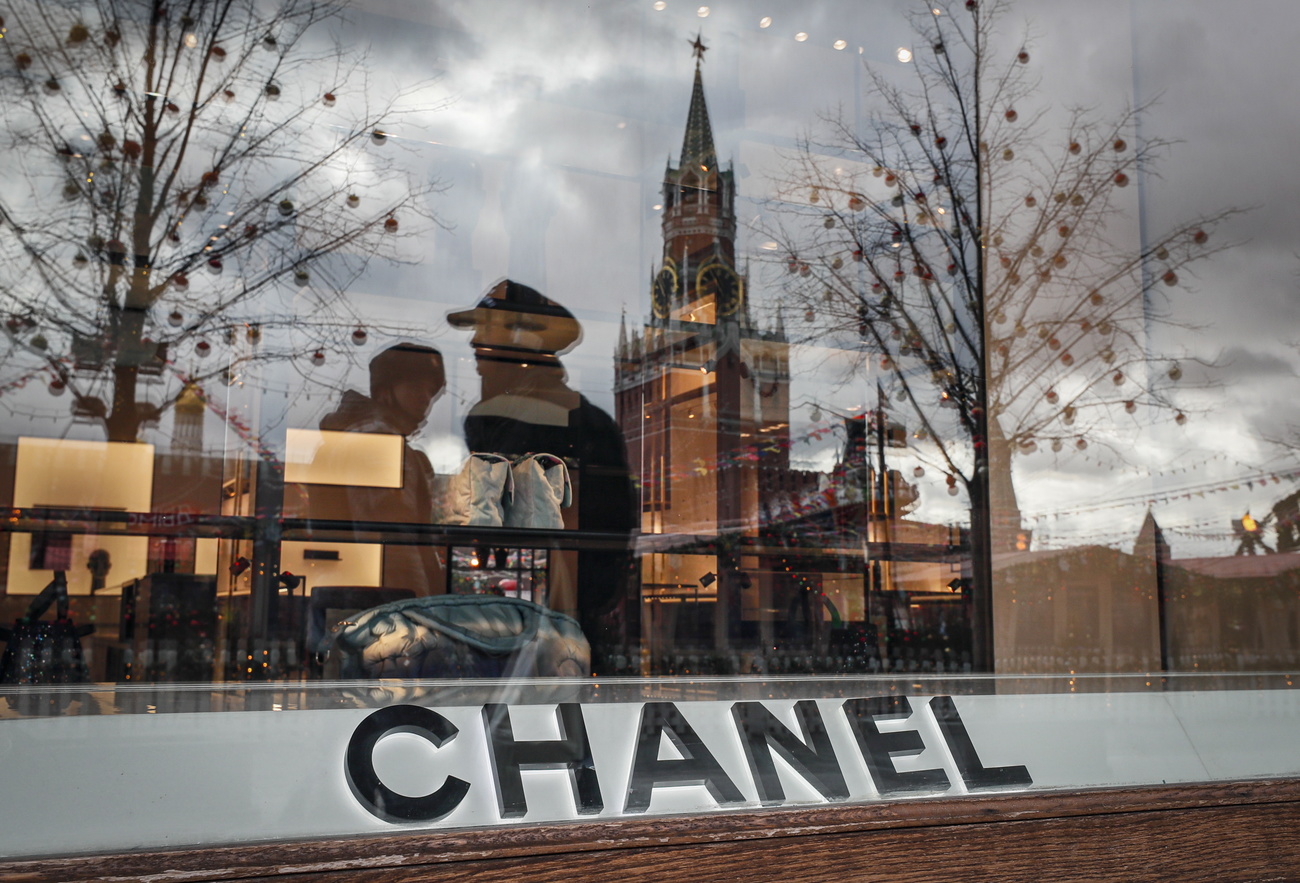
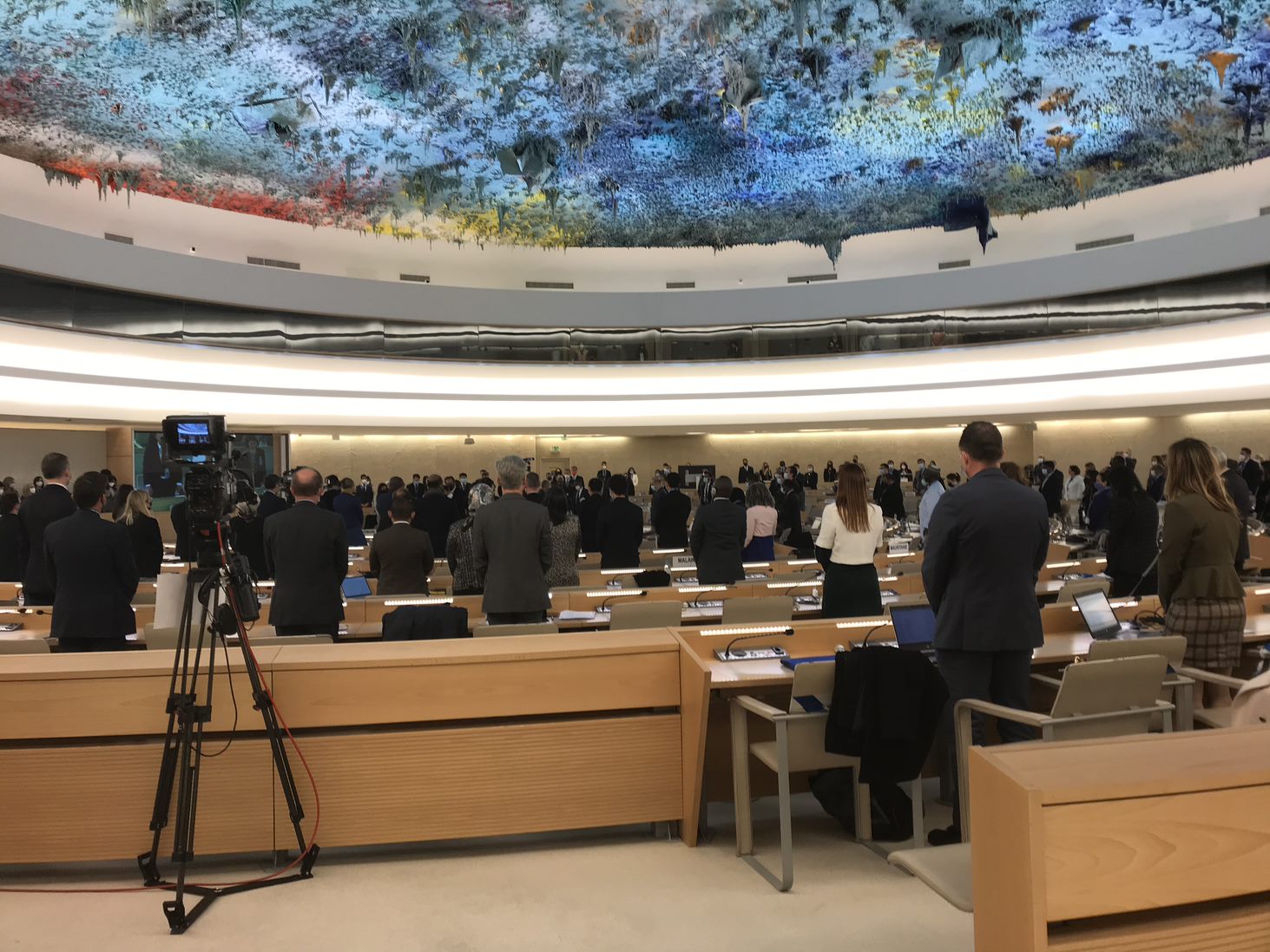
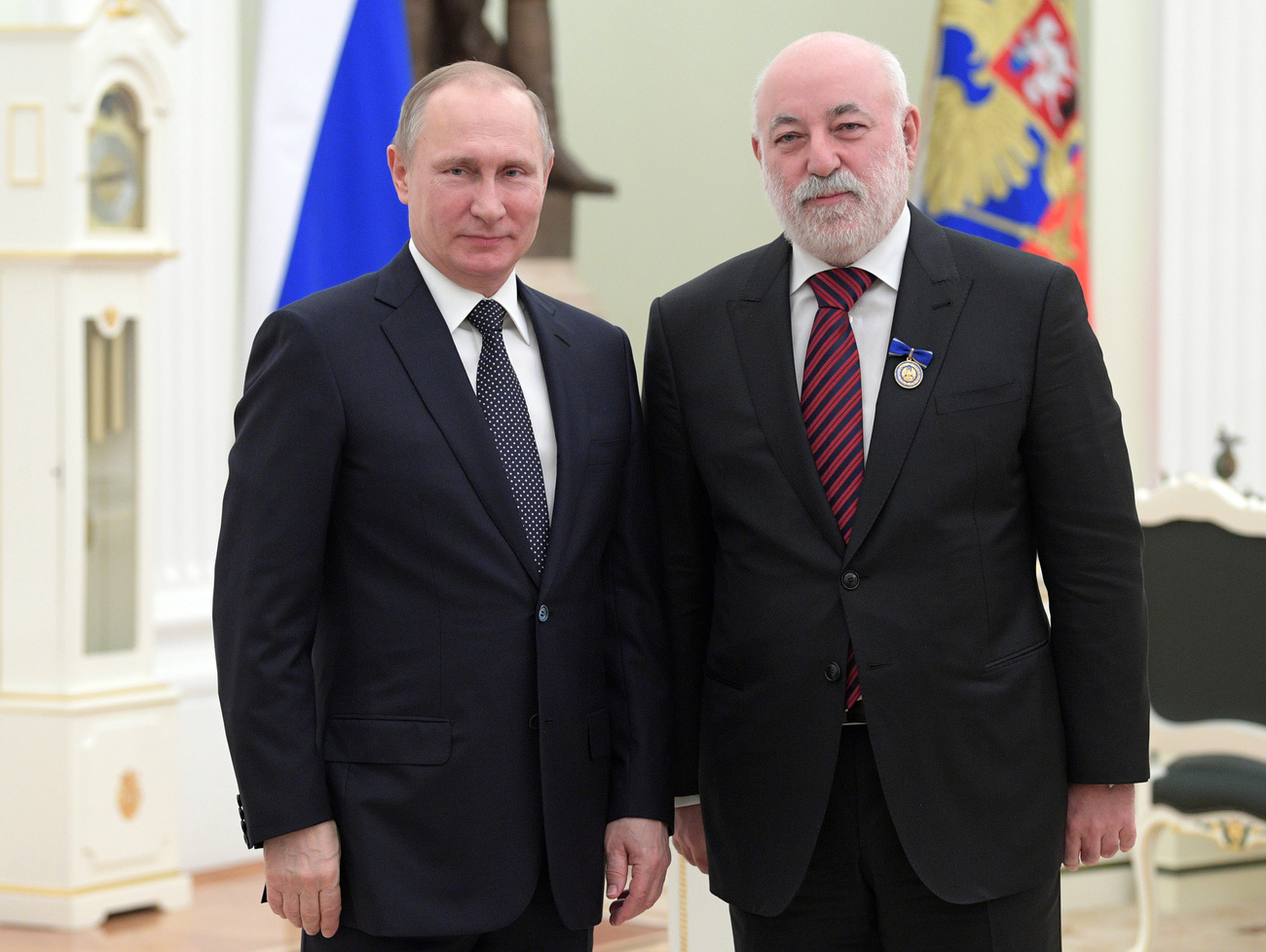
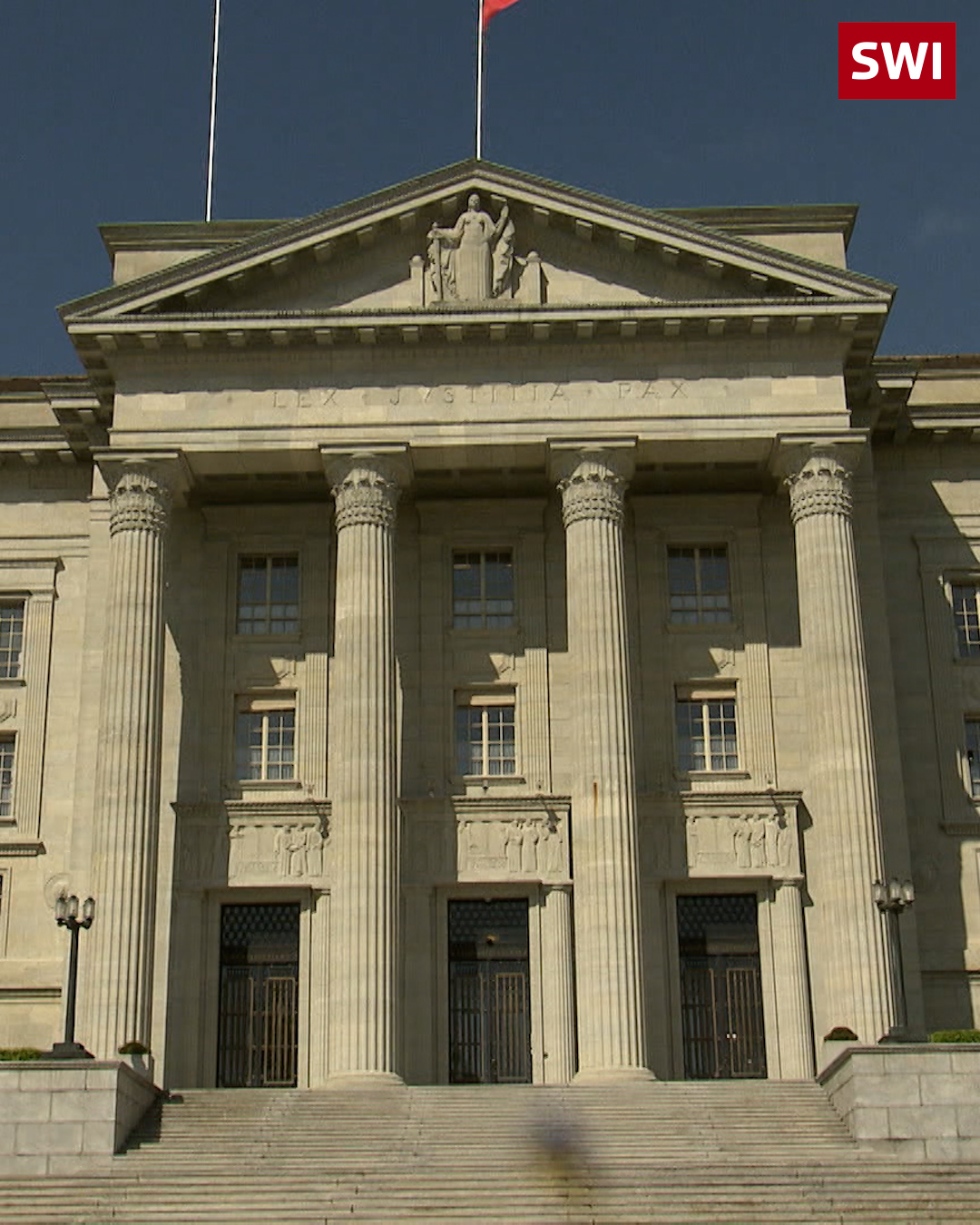
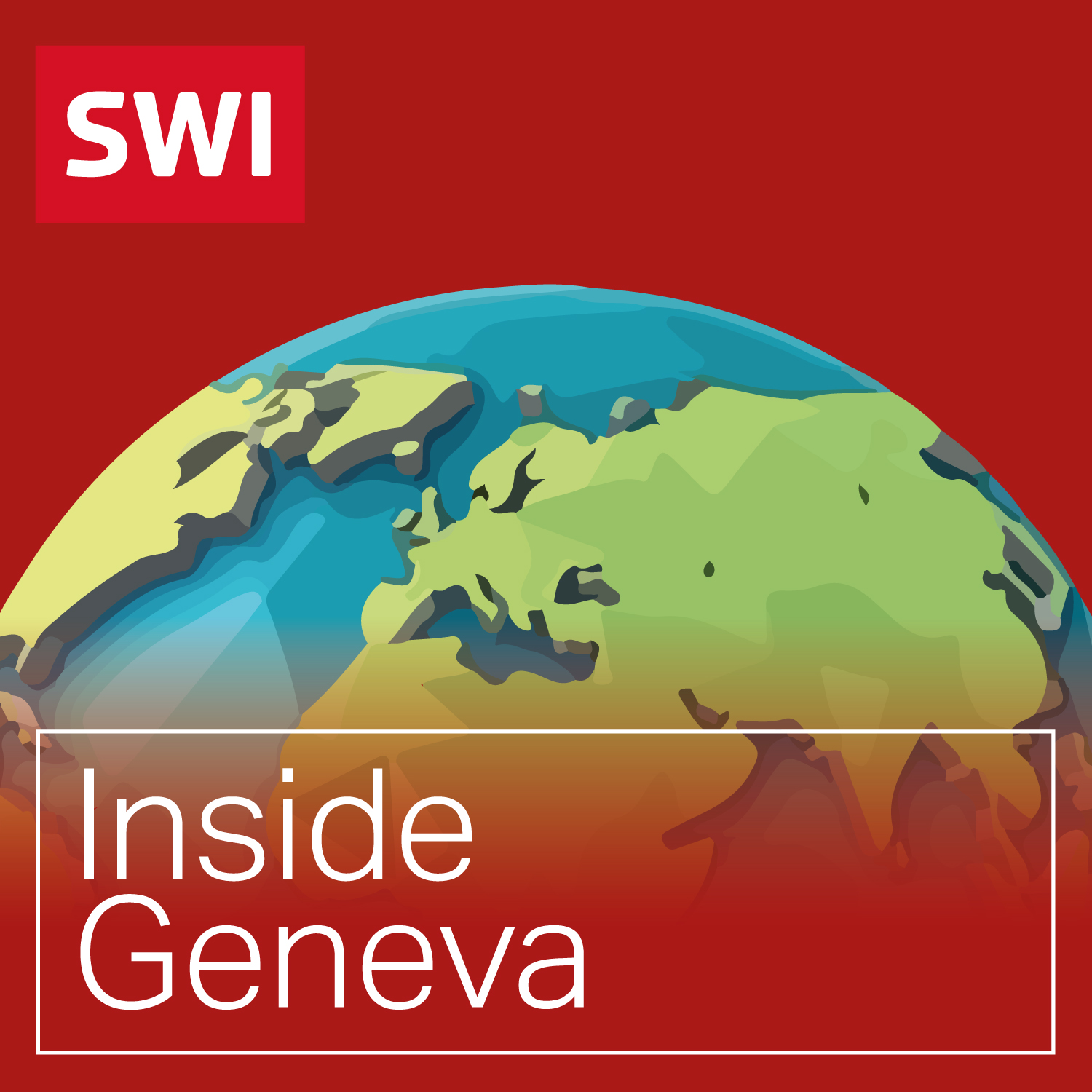
You can find an overview of ongoing debates with our journalists here . Please join us!
If you want to start a conversation about a topic raised in this article or want to report factual errors, email us at english@swissinfo.ch.